Search
Did you mean: Gaul?
Remove Ads
Advertisement
Summary 
Loading AI-generated summary based on World History Encyclopedia articles ...
Search Results
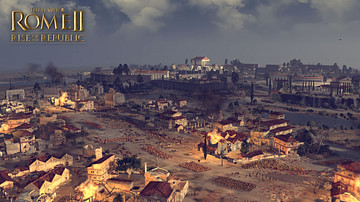
Article
The Sack of Rome by the Gauls, 390 BCE
After the Gauls defeated the Romans at the confluence of the Tiber and the Allia rivers, the Gauls marched on to Rome. In late July 390 BCE, the undefended city fell to the invaders to be burnt and sacked. Only on the Capitol Hill, did a...

Interview
Interview: Ave Caesar! Romans, Gauls and Germanic tribes on the Banks of the Rhine
In ancient times, the Rhine was a major communications artery stretching right across Europe, allowing trade, contacts, and cultural exchange between different regions. Then as now, the river was of immense importance strategically for controlling...
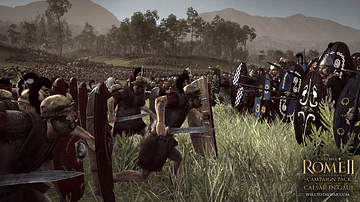
Article
Battle of Telamon
Ever since the 4th century BCE, the Gallic tribes of northern Italy clashed with the expanding Roman Republic. In 225 BCE, the Boii forged alliances with fellow Gallic tribes of northern Italy and with tribes from across the Alps. The pan-Gallic...

Article
The Battle at the Allia River, 390 BCE
The 390 BCE battle at the Allia River was fought between the city state of Rome and Gauls from northern Italy. When the Gauls laid siege to the Etruscan city of Clusium, the Romans intervened on behalf of the latter. The Gauls withdrew but...
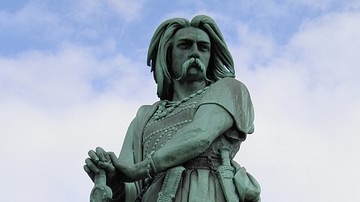
Definition
Vercingetorix
Vercingetorix (82-46 BCE) was a Gallic chieftain who rallied the tribes of Gaul (modern-day France) to repel the Roman invasion of Julius Caesar in 52 BCE. His name means "Victor of a Hundred Battles" and was not his birth name but a title...
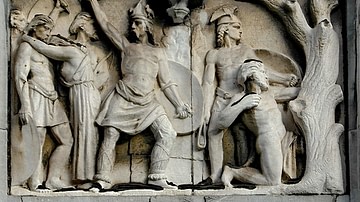
Image
Relief of Gauls Fighting Romans
A relief depicting the Gauls of Ambiorix fighting the Roman army of Julius Caesar in the mid-1st century BCE. (Palais Provincial, Liège, Belgium)

Article
Battle of Alesia
The Battle of Alesia was a decisive Roman victory in Julius Caesar's Gallic Wars in September 52 BCE. Roman commander Julius Caesar (100-44 BCE) and his legions faced a united Gallic army under the command of Vercingetorix (82-46 BCE), chief...
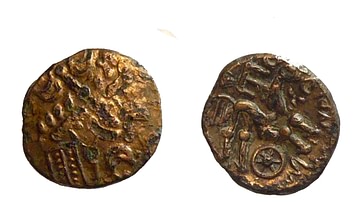
Definition
Commius
Commius was an Atrebates noble during Julius Caesar's Gallic Wars (58-50 BCE) who turned from Roman ally to indomitable foe. As king of the Atrebates, Commius ably served Caesar in Britannia and Gaul before becoming one of the main leaders...

Article
Pausanius' Guide To Ancient Athens
Pausanius (l. 110-180 CE) was a geographer and historian who traveled extensively, taking notes on points of interest, then wrote on them in guide books which could be used by tourists visiting the sites described. His works have long been...

Definition
Gaul
Gaul (Latin Gallia, French Gaule) is the name given by the Romans to the territories where the Celtic Gauls (Latin Galli, French Gaulois) lived, including present France, Belgium, Luxemburg and parts of the Netherlands, Switzerland, Germany...